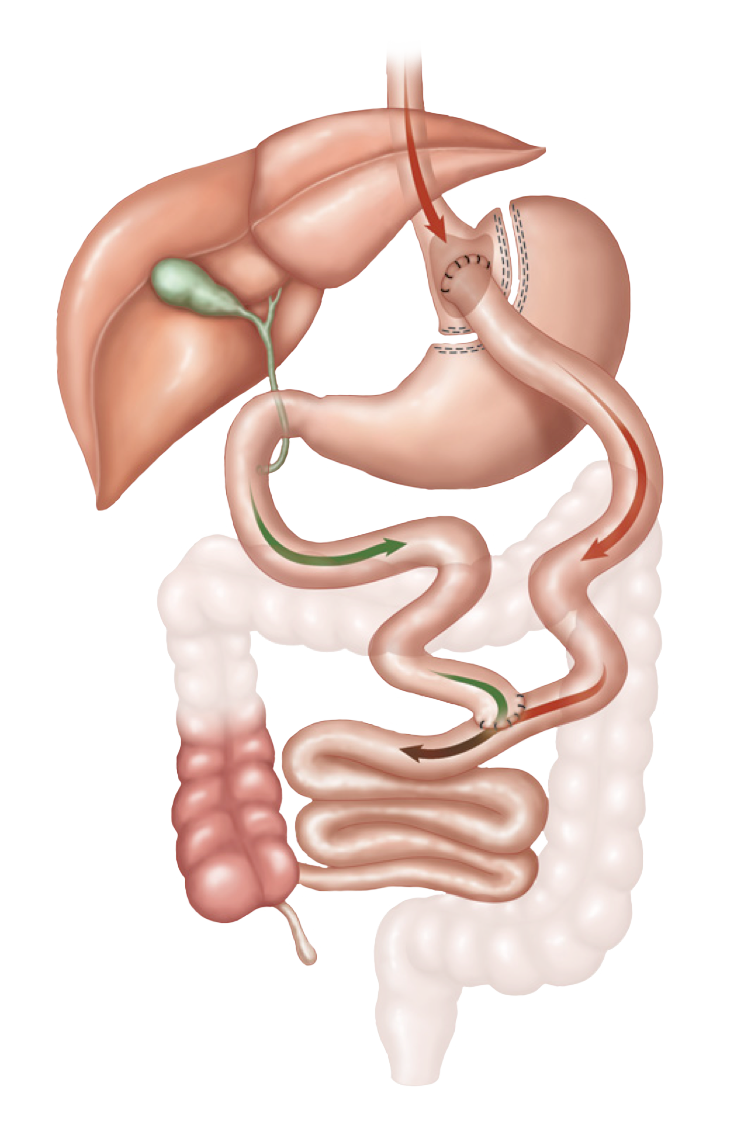Gastric Bypass Surgery

Learn about gastric bypass surgery and whether you are a candidate.
The gastric bypass surgery is currently the gold standard of weight loss procedures. Here's how it works:
The gastric bypass divides the stomach with a surgical stapling device to create a small pouch capable of holding 30ml of food. The pouch restricts food consumption and limits meal size portions.
The small intestine is then divided in two parts using the surgical stapling device. The lower part is connected to the small stomach pouch while the upper part is connected downstream on the intestine. This reconstruction of the small intestine bypasses parts of the digestive process and limits the absorption of food in the instestinal tract. There are also changes in hormones that suppress appetite and improve metabolism. Patients are typically in the hospital for 2 days.
The gastric bypass surgery can result in losing excess weight and can also result in the resolution or improvement of many obesity-related health conditions. Individual results may vary.
There are risks to the gastric bypass surgery including intestinal leaks, bleeding, ulcers, strictures and bowel obstruction. However, with an experienced care team the risks tend to be low.
Click here to use our BMI calculator to determine if you are a candidate for gastric bypass surgery.
Gastric bypass surgery is one of our bariatric surgery procedures. Learn more about our other weight loss procedures, our surgeon, Dr. McBean, and our caring medical staff.
Contact Us at The Bariatric and Hernia Institute at 240.206.8506 to learn more about our bariatric and hernia surgery programs or to set up an appointment.

